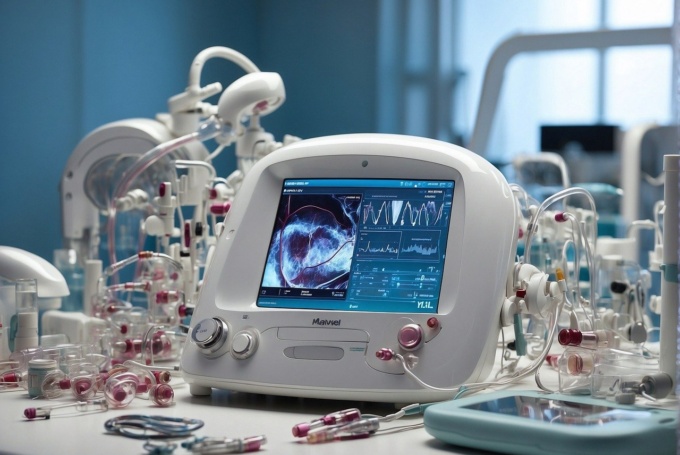As part of our ‘Female Leaders: Inspiring Together’ series, we interviewed Christine Grogan – Former Vice President Marketing Americas at KCI – about what inspired her to work in the medical device industry, and how she turned her recent redundancy into a positive project benefiting over 300 people.
Take a look at our biopharma industry page here.
Thanks for taking part in this campaign, Christine. To get us started please can you tell us a bit about your most recent role and the company that you worked for?
I’m Christine Grogan, and I worked as VP of Marketing for the Americas. I ran KCI’s marketing group for Latin America, Canada and the United States, and it was a great six-year journey. Most recently, 3M bought the company and some of the senior leadership departed, including myself.
What inspired you to get into the medical device industry in the first place?
That’s a great question. I worked at Allergan and I was working on Botox, which is more pharma, and it was my first jaunt into this space. I left Pfizer to go to Allergan and then someone asked if I wanted to work on breast implants. I knew nothing about the area, but the more I thought about it, helping women with breast cancer really appealed to me. Working on cosmetic was fine, but it was the breast cancer component that really appealed to me and that was my very first job in medical device. I launched a brand called Natrelle, and today it’s still a very well-known brand over in Europe, as well as the US.
What barriers have you encountered during your career growth and success as a female leader?
That’s a tough one. As I’ve matured, it’s actually gotten easier. When I was younger I used to model as well as work in this space, and I found as a woman you try to be taken seriously and unfortunately, you have to be very careful and be very rigid about your business acumen and how you come across in meetings so that people take you seriously.
I worked in New York City at Pfizer and image is very important. They used to coach us on image. One thing I’ll say to women, even when you don’t think someone’s looking, they might be. I was living in New York City and if I went out on a Friday night, I was very careful about how I acted because one night I ran into the President of Pfizer while I was at dinner. So just remember, people are always watching. As a female, unfortunately, we are maybe judged a little differently. I would also say, think about your social media and always act as if someone is watching. Always think would you be OK if they put this on the front of The New York Times? Hold yourself to a high standard.
How do you manage work-life balance, juggling, of course, having a family and being very successful in your career?
My husband would probably say I don’t juggle very well. I got married a little later in life, I have a six-year-old and I’m working on my doctorate right now. I’m a pretty Type A person, so I don’t think I have juggled as well as I should have. However, I will say you can’t have everything. If you’re going to show up perfect at work, perfect here, perfect there, there are going to be some things you might need to bend on. That means maybe at nighttime you don’t have to answer every single email. A lot of my female colleagues that have mentored me have told me to turn off my phone when I am with my family, and not to take my phone to bed. In the past, I have been really bad at looking at my phone when I’m talking to my child. I’ve been spending more time reading about how it is not good to multitask, so when you’re present, your present with your family and you have to forget about work.
I’ve been spending more time reading about how it is not good to multitask, so when you’re present, your present with your family and you have to forget about work.
What accomplishment – whether that’s personal or professional – are you most proud of?
Next year, I will have finished my PhD in hospital administration, so it’s not quite there, but I’m doing pretty good with that. I would say having my six-year-old child; she’s just been such a great addition to my life. I never thought about having a family because I was so focused on my career when I was in New York and then I moved to Allergan. So, I think having a family was probably my best accomplishment. But in terms of work, you know, I’ve had some great projects I worked on, as I mentioned, Botox, breast implants and I did some great work at Pfizer – it’s just been a great journey.
What has been the biggest challenge that you’ve faced in your career and how did you manage to overcome that?
Quite frankly, I was laid off last year, as I mentioned – 3M had to do what they had to do. When you buy a company, you have to consolidate. Being laid off in a pandemic was pretty challenging for me, and there were some non-competes I had to work around as well.
So, for the last year, with the Covid pandemic in general, I started a group called The Accelerators. It is painful to lose your job and it’s the first time I’ve ever lost a job, so I decided to help other people and asked people to pay it forward. We’re a group of 300 now and we get on the phone every week and we help each other find work. I’ve been consulting, so I’ve managed through this OK, but there’s a lot of people suffering who have not been able to find work. Although this is a big challenge for me, I’ve tried to turn it into a positive and I’ve given a lot of my time to share this group, The Accelerators, and we really have some fantastic people in the group, such as yourself. We are just trying to help people stay employed.
Do you ever suffer from self-doubt, and if so, how do you manage that and rein that back in?
That’s the imposter syndrome; I think most people have self-doubt. I don’t know that I have mastered reining it in. I think a lot of us talk among each other and we all think we’re not good enough. Hence, why do I feel I need to do a third master’s or a PhD? When is enough, enough? There’s a book called The Confidence Coach that a mentor of mine recommended and I recommend it to women. It talks about women and how we interview. There’s one good example: if I’m to interview for a job in medical device and I have nine of the ten assets they require and let’s just say my husband – who’s an ex-pro football player – probably has two of the ten skills, he would come in and say, ‘oh, that’s my job, I’m taking that job. I’m perfect for that job.’ I would be in my head thinking, ‘oh, my gosh, I don’t have that one skill.’ There was a study done on this and the book talks about it and in my experience it’s true. As women, sometimes we doubt ourselves too much. We have got to get that little voice out of our heads and know we’re good enough.
As women, sometimes we doubt ourselves too much. We have got to get that little voice out of our heads and know we’re good enough.
What do you think are the main challenges for women in the medical device industry?
I still think there’s a glass ceiling even though a lot has been done. I know California has a law now that there must be women on boards by this year, 2021. I’ve interviewed for a few boards, but having spoken to a lot of women who are society members of WBL.org, women are still having challenges getting on boards. In terms of senior leadership, a company may say they have 50% women, but if you look at where the women are, most of them are sales reps rather than at the top leadership level. When you really look at top leadership, most of the time you may see a woman in HR, finance or perhaps legal, but we’re still struggling to have female commercial leaders. To be completely fair, if a woman decides she wants to go out of the workforce because she’s having children, then that is completely her right and so some of it’s brought on by our own desires of what we want in life. It’s not a man versus women thing either.
What is the best advice that you’ve ever received as a woman in the industry?
That’s a great one. I have a lot of female friends that are leaders, and they have all just said to do a good job, show up, make connections. Quite frankly, I have mentors that are men and women. I would say as a woman to jump into what some call the ‘Boys’ Club’, and you can get along great with everyone. As a female, I think you just want to show that you can do the job and be respected and work well alongside men and women. One thing I would say is to try to help other women. Unfortunately, sometimes women seem to try to come after one another and that shouldn’t be the case. Always help women, not to exclude men or anybody else for that matter but help each other. I am also passionate about helping people from different ethnic backgrounds to reach leadership positions – it is so important as well. I’ve tried to focus on just trying to be my best every day. The last piece of advice on that note would be that LinkedIn is one area you can build your network. I have a lot of friends that have been laid off from a job and they have never built their network and don’t know anybody, so get to know as many people as you can in your universe.
Which women have inspired you the most? Again, that can be personal or in your professional life.
My first female boss in New York City was Meg Yoder from Pfizer. We stayed friends and she’s always just inspired me a lot as a leader. I have a good friend who is an attorney and is on a lot of boards, her name is Patricia Diaz Dennis. She’s really well known in the US and recommended The Confidence Coach to me. Lastly, there’s a woman named Anne Devereux, who is CEO of TBWA, and she’s done a lot to help women. She is currently on faculty at Stanford and runs something called the Parlay House and she’s a phenomenal woman. They are my three top ones.
What do you think is the best way for women to get into the medical industry?
Get to know people. In The Accelerator’s group phone call that we have, there are several females in there now trying to get into medical device and I’m trying to mentor them and it is free. I think the medical device industry for women is fabulous because you get to go in ORs. If you’re doing sales, you’ll be in the ORs. If you’re doing marketing, you could still get to be in the OR. I have worked in pharmaceutical too so I can give some insight into the differences and medical device just moves much faster than the pharmaceutical world. I encourage women to get into the industry. Find someone to help you get in because it’s hard and then show up, do a good job and continue to educate yourself.
I encourage women to get into the industry. Find someone to help you get in because it’s hard and then show up, do a good job and continue to educate yourself.
Is there anything else that you think is important to share as part of the campaign?
Sure. I’ve been in this for 25+ years, and I’ve always been dedicated to philanthropic efforts as well as my career. Pfizer sent me to Africa when I was pretty young, and I started doing nonprofit there. Wherever you work, I encourage you to try to give back. I think as females we can set the example. I run a nonprofit for breast cancer patients called Brave Coalition. We are in healthcare and we should always be trying to give back. I think that’s one of my values that I want to take with me wherever I go.
Our ‘Female Leaders: Inspiring Together’ series is running throughout March with the aim of inspiring and supporting women to become future leaders in their respective industries. Follow us on LinkedIn to join the conversation and hear the insightful stories of our featured female leaders.
Interested in our recruitment services? Book a consultation and one of our experts will be in touch.




